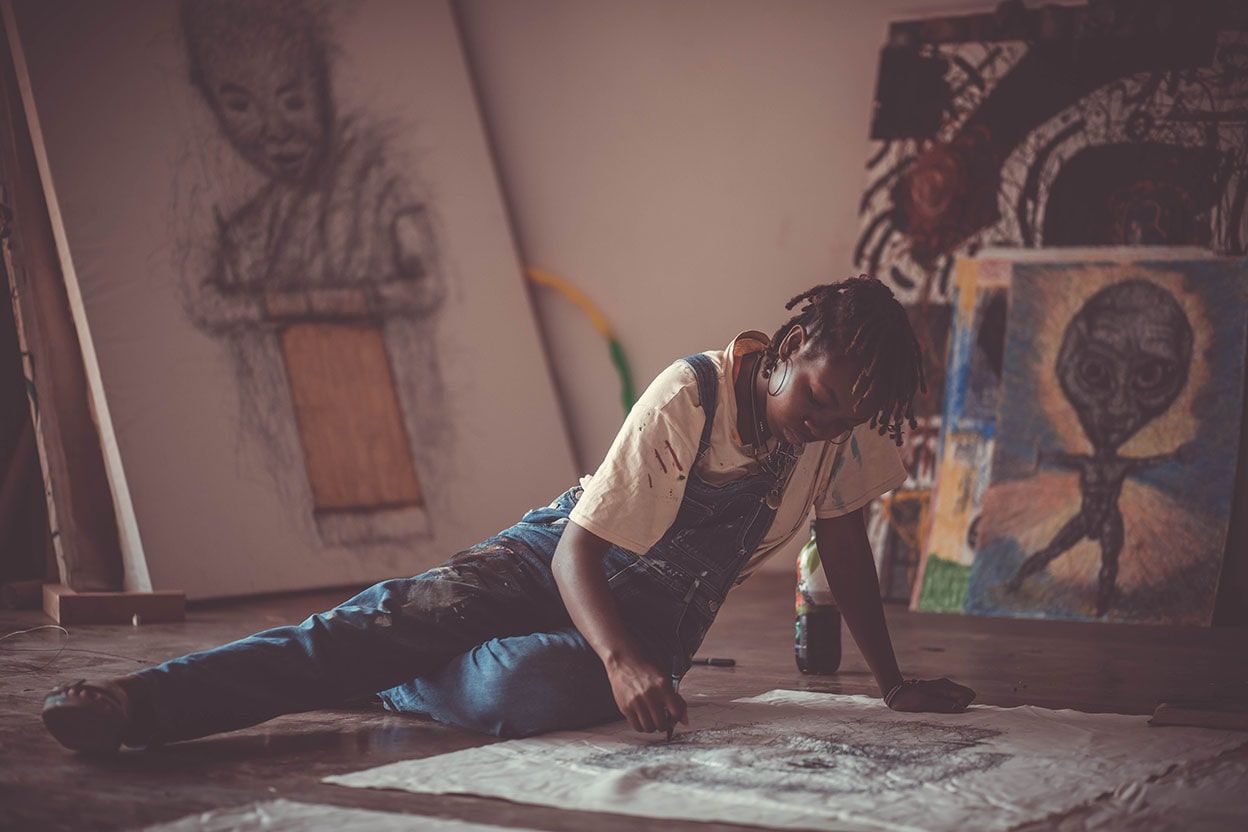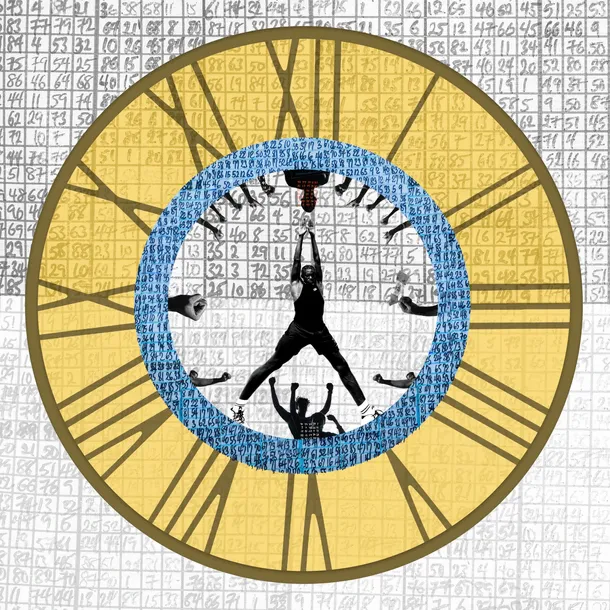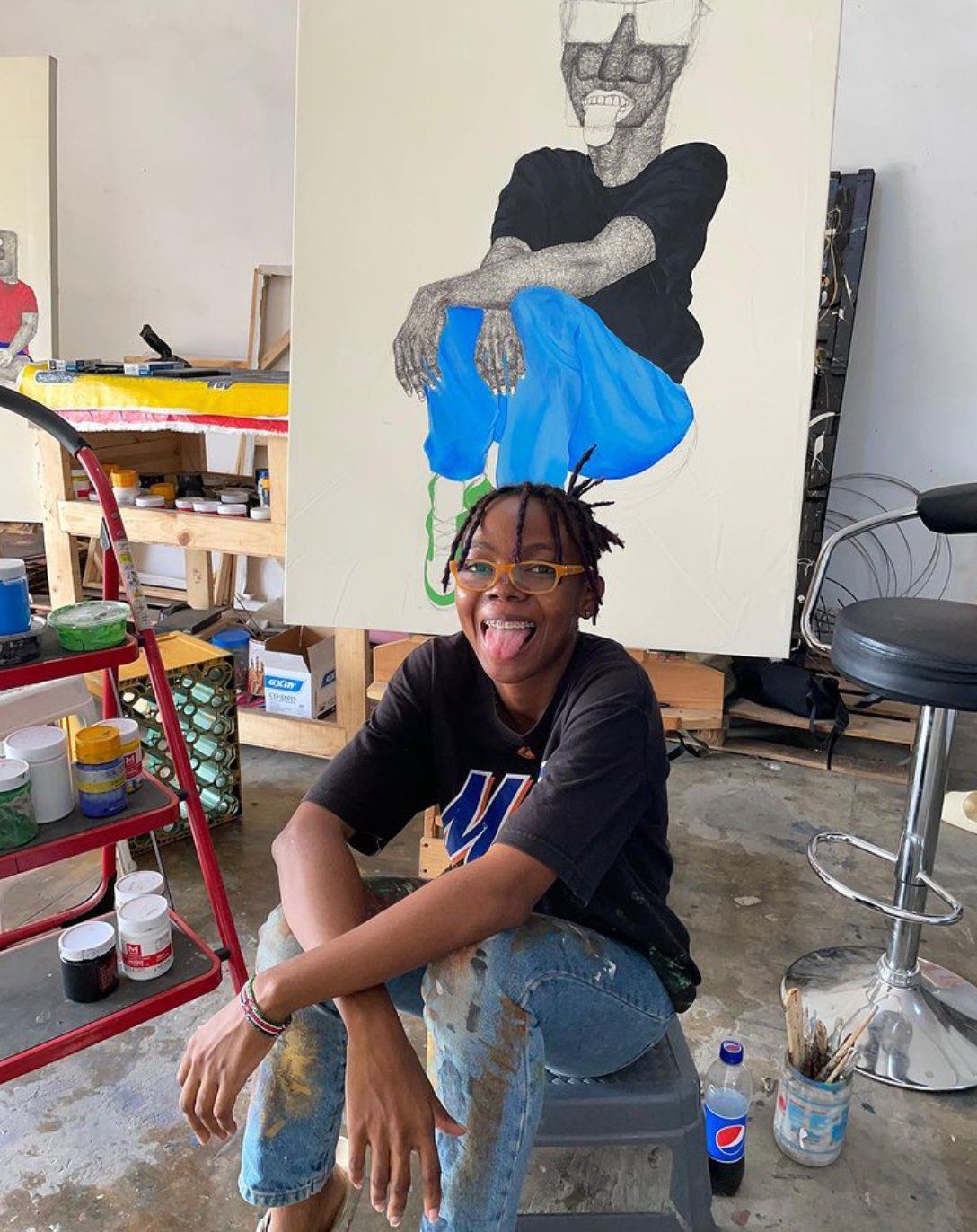OP-ED: Ayanfe Olarinde Is Taking Her Fine Art Onto A Global Digital Stage Via NFT Tech
Microbiologist turned visual artist Ayanfe Olarinde is riding international success a la NFT.

Ayanfe Olarinde, like many children of the African soil, was born to parents who wanted nothing more than for her to succeed. And succeed she has, but maybe not in the way her Nigerian parents had anticipated.
Like many who choose a career in arts, Ayanfe also had a fallback solution. With her microbiology degree under her belt (completed in 2018), she is garnering international recognition for her work and has stepped into the whizzy world of non-fungible tokens (NFTs).

According to Wikipedia, an NFT is a "non-interchangeable unit of data stored on a blockchain... that can be sold and traded". Recently, Ayanfe moved to convert some of her art into non-fungible digital files (aka tokens). This move has enabled her to verify ownership of her work online, begin to market it without the need of a middle man, stoke demand and perceived desirability for her work, and set herself up to profit from every current and future sale of her art.
Ayanfe explains that this shift was almost accidental.
"Someone on Twitter passed themselves off as having created my work. They were selling low-resolution screenshots of my art as if these were their own. I went crazy. My work was being traded on Twitter as NFTs I had nothing to do with. Thank goodness someone alerted me."
Ayanfe decided to join this digital world after chatting with a knowledgeable fellow Nigerian who had successfully sold his NFT art at the world-famous British auction house, Christie's.
"I wanted to evolve as the world is evolving. My work is known in a traditional sense, in the sense of art coming in hard copy that you hang on the wall, but I wasn't known in the digital world."
While it has taken some time for people to start trading her NFT art and spreading the word about it, Ayanfe is confident about the future of her work in this space.
Despite her international success, Ayanfe plays down her various accolades and international interviews and exposure through the likes of CNN, Reuters and Vogue magazine. Exploiting several mediums in her art, Ayanfe hopes to inspire and encourage young artists and others from the continent we call home.
"I hope my work influences people in similar situations, helping them find solutions or the light that will lead them to solutions. Like the way Picasso still influences artists, I seek to continue to be an inspiration long after I am gone."
Start at the beginning
Ayanfe admits that for most artists, making a sustainable livelihood is tricky. The US dollar Nigerian Naira exchange rate means that art materials are not cheap, and dealing with the import parity many local vendors place on local goods has not been easy. She has often had to improvise and make her own materials.
"I think about what I can use that would work, as well as last, and stand the test of time. This also helps me use my brain."
But art has been so much more than a way to profit for Ayanfe. During our podcast conversation, she sounded content and at peace with the world, surrounded by her sleeping dogs and art paraphernalia. Her entry into art started as a means to accept who and what she is.

Her journey into art emanated from her love for scribbling; an art form bore out of imperfection on her quest for acceptance. Ayanfe found a way to unpack her emotions in thought-provoking ways.
Subsequently, she incorporated other mediums into her work, including ink, paint, wire, and discarded objects in creating scribbles, doodles, sculptures, paintings, digital art, upcycled artworks and textures for her scribbles as she continued to self-explore.
Currently chronicling her life through a visual autobiography, Ayanfe has had moments in her career that she has regretted, such as a commission that became part of her life as she put so much of herself into it.
Those who buy her work are collectors and everyday people who identify with her art.
"I love to sell to certain collectors. Some of my works are very personal, and I can't let go of them. Others, I keep for people who have connected with certain items of my art, who have similar stories."
However, economics also came into it because Ayanfe initially had to sell to get the capital to fund a studio. Now, she needs to vend her art because she needs to buy materials.
"I'm not self-sustainable yet, but my parents are proud of me."
Would she have had life any other way? No, she says.
"I have been inspired by my country and its tricky economy – the hardships I see around me. I wouldn't have wanted to be born with everything I want."
Editorial Disclaimer: This opinion editorial was first published as Taking Art Onto a Global Stage Through Digital Technology in Business Report (South Africa) on 7 April 2022. The article is part of a Web3 education opinion editorial series resourced by the Celo Community Fund. Opinions expressed by the author do not necessarily reflect the views of the African Tech Roundup or the Celo Community Fund.

